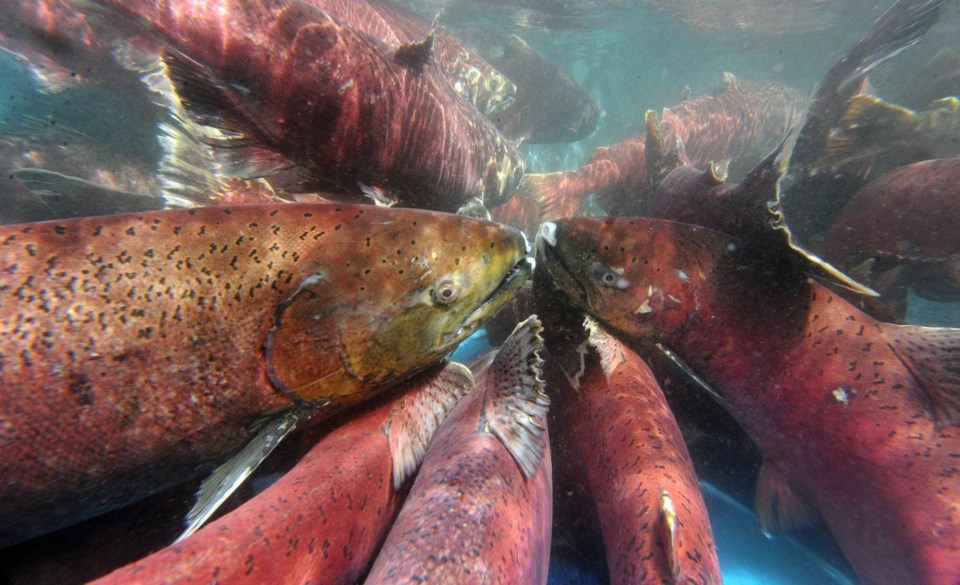WHITEHORSE — Canada and the United States are suspending all fishing for Canadian-origin Yukon River chinook salmon for seven years in an attempt to protect the dwindling species.
The agreement covers the length of one life cycle of the fish, and recognizes that the "persistent decline of chinook salmon" has led to an inability to meet conservation objectives in both countries.
Dennis Zimmermann, the chair of the Yukon Salmon Subcommittee, an advisory body focused on the salmon, said the deal is a year in the making and means having a long-term plan to protect the fish, rather than deciding annually how much fishing would be allowed.
"(Chinook are) the lifeblood of the Yukon River. They're part of that woven cultural fabric that brought people together. I mean, communities reside on rivers because there was such an abundance of these large, mature, protein-rich chinook salmon," he said.
Zimmermann said those on the water have watched as the once-large and meaty fish, which travel thousands of kilometres to spawn in Yukon and northern –°¿∂ ”∆µ rivers, have become smaller, more sickly and returned in fewer and fewer numbers.
A statement from Fisheries and Oceans Canada said that since the 1980s, the chinook population has declined to less than 10 per cent of its historical average of 150,000 adult salmon originating from the Canadian portion of the watershed.
It said less than one-third the minimum number of adult chinook salmon necessary to sustain the population have returned to their spawning grounds in Canada in recent years.
The agreement covers all commercial, recreational and domestic fishing and runs from April 2024 through 2030 with a goal of rebuilding the population to 71,000 Canadian-origin chinook salmon.
The governments have agreed to work on habitat and stock restoration activities and support research to better understand the declines of chinook salmon.
The statement said the declines are attributed to "a combination of historical overfishing, increased prevalence of disease and climate change and resulting effects on survival in marine and freshwater environments."
The agreement also points to factors including habitat degradation from resource and hydroelectric development as well as competition from hatchery production.
Zimmermann said he's hopeful that the changes aren't coming too late to protect the species.
"At the end of the day, we have to provide hope. We have to keep salmon in the hearts and minds of people or else they're less likely to care. And then we're really in trouble," he said.
The statement said the commitment is necessary to support long-term recovery and rebuilding of chinook in the Yukon River.
"Chinook salmon are integral to the environment, culture and fabric of Yukon and interior/western Alaska," Diane Lebouthillier, the federal minister of fisheries and oceans, said in the statement.
"Undertaking international action through co-operative measures in both Canada and the United States is necessary to ensure we are all working together to protect and restore this essential species for future generations."
This report by The Canadian Press was first published May 22, 2024.
The Canadian Press




